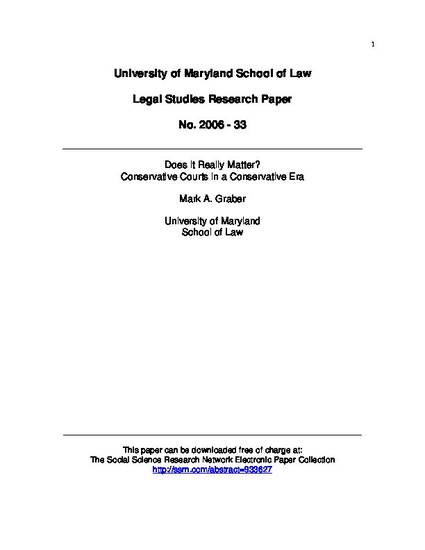
- Judicial review,
- conservatism,
- libertarianism,
- law and politics
This essay explores the likelihood that conservative federal courts in the near future will be agents of conservative social change. In particular, the paper assesses whether conservative justices on some issues will support more conservative policies than conservative elected officials are presently willing to enact and whether such judicial decisions will influence public policy. My primary conclusion is that, as long as conservatives remain politically ascendant in the elected branches of government, the Roberts Court is likely to influence American politics at the margins. The new conservative judicial majority is likely to be more libertarian than conservative majorities in the elected branches of government and make policies that conservative majorities privately prefer but would rather not publicly champion. Nevertheless, progressives have far more to fear at present from the radicals in suits who control the elected branches of government than the radicals in robes who increasing control the judiciary. Conservative Republican judicial appointees are likely to have far more impact on public policy should Democrats regain partial control of other federal institutions. More generally, this paper finds that judicial review in the United States and abroad at the turn of the twenty-first century is contributing to a drift toward libertarianism and should be assessed as such.
Available at: http://works.bepress.com/mark_graber/5/
